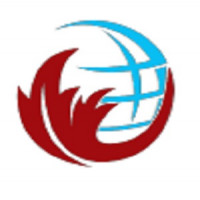Canadian Immigration Documents - What You Need to Know

Strong 8k brings an ultra-HD IPTV experience to your living room and your pocket.
Immigrating to Canada is a detailed process that involves gathering various types of documents to prove your eligibility, support your claims, and meet government requirements. Understanding the types of documents required for different immigration categories can help applicants avoid delays and rejections. Whether you are applying for permanent residency, a temporary visa, or seeking to reunite with family, this article will provide an in-depth overview of the essential documents needed for different types of Canadian immigration applications.
1. Common Types of Canadian Immigration Programs
Canada offers a wide variety of immigration programs, each with its specific document requirements. Some of the most common immigration pathways include:
• Express Entry: A point-based system for skilled workers under the Federal Skilled Worker Program (FSWP), Federal Skilled Trades Program (FSTP), and Canadian Experience Class (CEC).
• Provincial Nominee Program (PNP): For workers who are nominated by Canadian provinces or territories based on labor market needs.
• Family Sponsorship: For Canadian citizens and permanent residents who wish to sponsor family members such as spouses, children, parents, or grandparents.
• Temporary Work Permits: For individuals seeking temporary employment in Canada.
• Study Permits: For international students who wish to study at Canadian educational institutions.
• Business Immigration Programs: For entrepreneurs, investors, and self-employed individuals.
• The type of documents you need will vary depending on the immigration category, but there are certain core documents that most applicants must provide.
2. Core Documents Required for Most Canadian Immigration Applications
a. Valid Passport or Travel Document
A valid passport is required for all immigration applications. Ensure that your passport is current and will not expire soon. Your passport should have enough blank pages for visa stamps, and it must be valid for the duration of your intended stay in Canada.
Tip: If you are including family members in your application, each member must have their own valid passport.
b. Language Proficiency Test Results
For immigration programs that evaluate language skills, such as Express Entry, you must provide proof of your proficiency in English or French. Accepted tests include:
• IELTS (International English Language Testing System) – General Training for English.
• CELPIP (Canadian English Language Proficiency Index Program) – General Test for English.
• TEF (Test d’Évaluation de Français) – For French.
• TCF (Test de Connaissance du Français) – For French.
c. Educational Credential Assessment (ECA)
For applicants who completed their education outside of Canada, an Educational Credential Assessment (ECA) is required to verify that your foreign education is equivalent to Canadian educational standards. ECAs must be obtained from a designated organization such as:
• World Education Services (WES)
• International Credential Assessment Service of Canada (ICAS)
• Comparative Education Service (CES)
• International Qualifications Assessment Service (IQAS)
Tip: The ECA is mandatory for applicants under the Federal Skilled Worker Program and may also be required for Provincial Nominee Programs.
d. Proof of Work Experience
For programs like Express Entry or Provincial Nominee Programs, applicants need to provide evidence of their work experience. This typically includes:
• Job offer letter(s) or contract(s)
• Reference letters from previous employers, detailing your job title, responsibilities, and the duration of employment.
• Pay stubs or tax documents to prove your income and employment.
e. Police Clearance Certificate
A Police Clearance Certificate (PCC) is required for every country you’ve lived in for six months or longer since turning 18. This certificate proves that you don’t have a criminal record, which could make you ineligible for Canadian immigration.
f. Medical Examination Report
Applicants may be required to undergo a medical examination conducted by a panel physician approved by Immigration, Refugees and Citizenship Canada (IRCC). This is to ensure that the applicant and their family members do not pose a public health or safety risk to Canada.
Tip: Medical exams are typically required for permanent residency applications and some types of temporary residency, such as work permits and study permits.
g. Proof of Funds
For certain immigration streams, like the Federal Skilled Worker Program and Provincial Nominee Programs, applicants must provide proof of sufficient funds to support themselves and their family upon arriving in Canada. This can include:
• Bank statements for the last six months.
• Proof of property or investments.
• A letter from your bank or financial institution confirming your account balance.
Tip: Proof of funds is not required if you have a valid job offer from a Canadian employer.
3. Specific Documents for Different Canadian Immigration Categories
a. Express Entry
The Express Entry system is designed for skilled workers applying under the Federal Skilled Worker Program (FSWP), Federal Skilled Trades Program (FSTP), or Canadian Experience Class (CEC). Specific documents include:
• Comprehensive Ranking System (CRS) Profile: A profile with your personal details, skills, work experience, and education to determine your eligibility and ranking.
• ECA report: For education credentials obtained outside Canada.
• Language test results: IELTS or CELPIP scores for English and/or TEF/TCF for French.
• Reference letters: Verifying your work experience.
• Proof of funds: Showing financial ability to support yourself and your family.
b. Provincial Nominee Program (PNP)
Each Canadian province and territory has its own immigration programs, often requiring:
• Nomination certificate: From the province or territory, showing that you’ve been selected.
• ECA (if applicable): For education credentials from outside Canada.
• Language test results: To prove proficiency in English or French.
• Proof of employment or work experience: Letters from employers and contracts.
• Proof of settlement funds: As required by the specific province.
c. Family Sponsorship
For Canadian citizens or permanent residents sponsoring family members, such as a spouse or dependent children, key documents include:
• Proof of relationship: Marriage certificate (for spouse sponsorship), birth certificates (for dependent children), or adoption papers (for adopted children).
• Sponsor’s proof of status: Copy of Canadian citizenship or permanent resident card.
• Financial support documents: Proof that the sponsor meets the minimum income requirements to support the sponsored family members.
Tip: Family sponsorship applications must also include evidence showing the sponsor’s intent to support the family member for a specific period.
d. Temporary Work Permit
For individuals applying for a work permit to take up employment in Canada, required documents typically include:
• Job offer letter: From a Canadian employer.
• Labour Market Impact Assessment (LMIA): In most cases, the employer needs to provide an LMIA from Employment and Social Development Canada (ESDC) showing that there is no Canadian available for the job.
• Employer compliance fee receipt: Proof that the employer has paid the required compliance fee.
• Proof of qualifications: Diplomas, certifications, and reference letters to confirm your skills and experience.
e. Study Permit
For international students who wish to study in Canada, essential documents include:
• Letter of acceptance: From a Designated Learning Institution (DLI) in Canada.
• Proof of sufficient funds: To cover tuition fees, living expenses, and return transportation costs.
• Study plan or statement of intent: Explaining why you want to study in Canada and your future career goals.
• Biometrics: Depending on your country of origin, you may need to submit fingerprints and photos.
• Proof of language proficiency: English or French test results (if required by the institution).
f. Business Immigration
Business immigration programs, such as the Start-Up Visa Program or the Self-Employed Persons Program, require additional documentation that demonstrates your ability to run a business or invest in Canada. This includes:
• Business plan: Showing how your business will create jobs or contribute to the economy.
• Proof of investment: For investment-based immigration streams, you must provide proof of the funds you plan to invest.
• Proof of net worth: To demonstrate that you meet the financial criteria for business immigration.
• Letters of support: From designated organizations (venture capital funds, angel investor groups, or business incubators) for the Start-Up Visa Program.
4. General Tips for Preparing Your Immigration Documents
a. Ensure Accuracy and Consistency
Make sure that all the information in your documents is accurate and consistent. Inconsistencies, even minor ones, could lead to delays or rejection.
b. Translate Documents (If Necessary)
If any of your documents are in a language other than English or French, you’ll need to provide certified translations along with the original documents.
c. Submit Complete Applications
Incomplete applications are one of the main reasons for delays or rejections. Double-check the document checklist for your specific immigration program and make sure to submit all required documents.
d. Certified Copies
If submitting paper documents, ensure that you provide certified copies (not originals) unless instructed otherwise by the immigration authorities.
e. Keep Records
Make copies of everything you submit. This will help you track your application and provide additional documents if needed.
Canadian immigration processes involve submitting various documents to prove your eligibility and readiness to move to Canada. While each immigration program has its unique requirements, understanding the core documents common across most applications, such as passports, language test results, police clearance certificates, and proof of funds, is crucial to a successful application. Make sure to carefully follow the document checklist for your specific program, and stay organized to avoid delays and errors.
Note: IndiBlogHub features both user-submitted and editorial content. We do not verify third-party contributions. Read our Disclaimer and Privacy Policyfor details.


